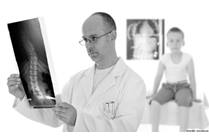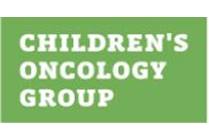Search Results
Viewing: 291-300 of 336 | All

Article
Echocardiography
The echocardiography laboratory at Nationwide Children’s interprets over 11,000 echocardiograms per year and is the largest volume echocardiography laboratory in the state.
Article
Allergy Skin Testing
If your child is being seen for possible allergies, asthma, frequent infections or stuffy nose, allergy skin testing may be recommended. Testing can help find out what "allergen" causes the symptoms. It could be something breathed in, touched, or eaten.

Blog
Our Top 10 Blog Posts of 2017
For the past three years we have saved a slot on our calendar to list the top 10 posts of the year. In 2017, we shared year-over-year favorites, trending and newsworthy topics and told you about new initiatives.
Article
Epinephrine Auto-Injectors for Severe Allergic Reaction (Adrenaclick®, Auvi-Q®, EpiPen®, Symjepi®)
When and how to use an EpiPen if your child has a severe allergic reaction.

News
While Study Finds Decrease in Eye Exposures Associated with Household Cleaning Products, Experts Still Urge Proper Storage
A new study conducted by the Center for Injury Research and Policy and the Central Ohio Poison Center at Nationwide Children’s Hospital analyzed data regarding eye exposures associated with household cleaning products from 2000 through 2016 and found a decrease in the number of exposures during this period. However, the number of these exposures among young children remains high.

Blog
Scoliosis: Is the Curve in Your Child's Spine Normal?
Scoliosis is defined as curvature in the spine greater than 10 degrees. Scoliosis is a relatively common condition that causes the spine to curve and rotate into a C or S shape instead of a straight line.
Article
Inhalers: Spacers
Many medicines that help make breathing easier are taken by an inhaler. The inhaler must be used the right way, or the medicine will not get into the lungs to make your child feel better. A spacer is a device that helps the medicine get into the lungs.

News
New Initiative Aims to Improve Diagnosis and Treatment of Children with Solid Tumors Through Molecular Analysis
The National Cancer Institute (NCI), part of the National Institutes of Health, Children’s Oncology Group (COG), and Nationwide Children's Hospital are poised to change the direction of pediatric cancer diagnosis and care. New results from international efforts to characterize pediatric cancers have led to the Molecular Characterization Initiative: a project that aims to collect, analyze, and report clinical molecular data to support COG-affiliated clinicians in choosing the best treatment for each child. This program is part of the NCI Childhood Cancer Data Initiative (CCDI).

Specialty
Heart Transplant Program
Heart transplants save and change lives. The heart transplant team at Nationwide Children’s focuses on maximizing a patient’s health before, during and after transplantation. Our goal is to help our patients achieve an ideal outcome after their heart transplant.
Article
IV: Implanted Port
The implanted port is a device that is placed under the skin. It lessens the need to start an IV for every treatment.
